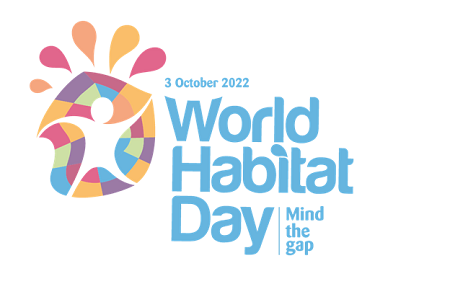On the occasion of World Habitat Day 2022, Habitat International Coalition (HIC) joins Members, allies and development actors to reflect on its journey of more than 45 years since the first Habitat Conference (1976) and common Habitat Agendas. Global activism has been indispensable in developing global consensus and commitments to progressively realize the human right to adequate housing for all.
On this day, HIC and its social base of some 350 Member organizations in over 80 countries extend their deeply felt solidarity with those on the frontline of struggle to honor and uphold the obligations and commitments of our states.
Since 1976, HIC has built a body of collective work, including channeling frontline voices into international standard setting to advance the related human rights norms to be practiced on the ground. For example. HIC Members’ early engagement with the UN Human Rights System prioritized the elaboration of a formal definition of the human right to adequate housing, promised in so few well-chosen words in the Covenant on Economic, Social and Cultural Rights’ Article 11.
Cooperation with the Committee on Economic, Social and Cultural Rights led to that legal definition in the Committee’s General Comment No. 4 (1991), the first such General Comment dedicated to a particular human right guaranteed under the Covenant. That authoritative instrument recognized that “Notwithstanding the type of tenure, all persons should possess a degree of security of tenure [that] guarantees legal protection against forced eviction, harassment and other threats.” Consequently, the Committee called for states parties to “take immediate measures aimed at conferring legal security of tenure upon those persons and households currently lacking such protection, in genuine consultation with affected persons and groups” (para. 8a).
At Habitat II, in 1996, with direct HIC and civil society involvement in the negotiations, the Istanbul Declaration and Program of Action committed all states to the “progressive realization of the human right to adequate housing,” repeating the promise 61 times in that policy instrument. A year later, the Committee on Economic, Social and Cultural Rights adopted General Comment No. 7, recognizing the prohibition against the practice of forced eviction by states and third parties It enshrined legal criteria distinguishing lawful eviction from forced eviction. Those criteria have withstood the test of the ensuing 27 years.
Moreover, the Commission on Human Rights also affirmed in 1993 and reaffirmed in 2004 that forced eviction constitutes “a gross violation of human rights, in particular the human right to adequate housing.” By 2006, the General Assembly adopted the reparations framework for the victims of such gross violations of human rights (A/RES/60/147).
By now, the UN Human Rights Council also has received this consistent advice from four successive Special Rapporteurs on adequate housing throughout the past two decades. Also within the UN Development System, the New Urban Agenda of 2016 has provided specificity to a bundle of SDGs, guiding implementation of not only those temporary and voluntary commitments in the 2030 Agenda, but also the prior, permanent and binding obligations of states to respect, protect and fulfill human rights, including the human right to adequate housing.
In response to the demands of local communities, the New Urban Agenda policy instrument also commits states to “prevent forced eviction” (paras. 31, 107, 111). It also repeats states’ commitment to “realize the social function of land” (paras. 13 and 69) and to support the “social production of housing and habitat” (paras. 31 and 46), which involves “the processes that generate habitable spaces, urban components and homes and carried out under the control of self-producers and other social agents who operate outside the formal market without seeking profit.
These global commitments related to states’ obligation to respect, protect and fulfill the human right to adequate housing norms take on existential importance for HIC, which has accompanied all this theoretical standard setting and also today still seeks their implementation.
However, we regret the continuing gross violations of human rights and especially condemn and mourn the assassination of four South African housing and land rights defenders in this year alone. However, we also organize in solidarity with struggling communities in the pursuit of just reparations for gross violations, including forced eviction and dispossession. Today, we may conclude that we still have a long, long way to go.
Download














